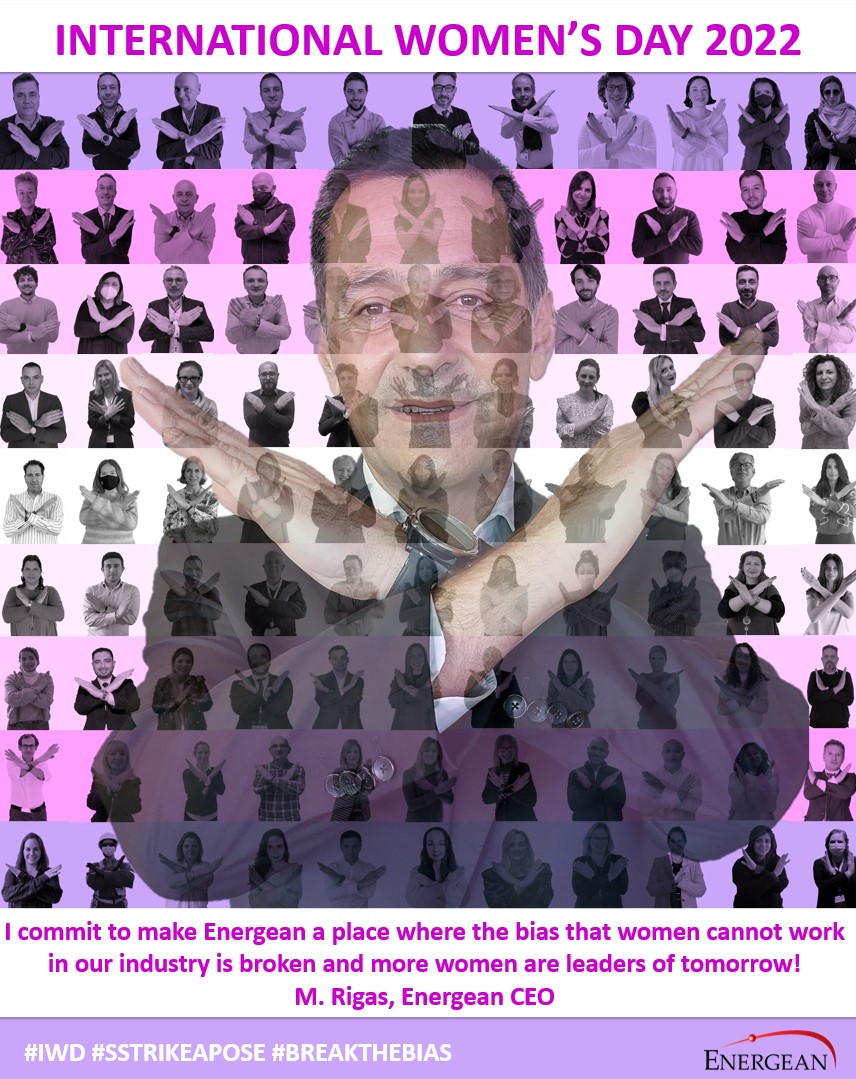Striving for gender equality and challenging bias in the workplace



This year's International Women's Day focuses on building a world free of bias, stereotypes and discrimination to achieve gender parity. As the world emerges from a pandemic and faces immediate challenges from the war in Europe to the inter-related issues of energy security and climate change, we need to make sure that the aim of achieving a gender-balanced society is not overshadowed and that momentum is not lost. In order to #BreakTheBias, it’s clear that both individuals and businesses collectively must play a role in reinforcing awareness of the need for creating a more diverse, equitable, and inclusive world.
This change must come from the top; decision-makers, particularly within our industry which has traditionally been a male-dominated one, need to think more openly – beyond their own perspectives. Instead of seeing a drilling engineer as a "man's job", preconceptions need to be challenged so we think beyond that and consider women for the role. By creating platforms to showcase women's skillsets, we can assist in this process.
The energy industry is not alone in its historical difficulties in advancing women into middle and senior leadership positions. Only 5% of FTSE 350 CEOs are women. Despite encouraging growth in recent years, women studying science, technology, engineering and mathematics subjects at university still only make up around 35% of students. It begs the urgent question; how can we collectively enable this change?
The rise of women is not about the fall of men
To coin a political term, "levelling up" one group of people does not work if another group of people are levelled down. The advantages of a diverse workforce and population are well-known; it's only through understanding the economic and societal benefits that can be achieved as a result of the equal treatment of men and women that we will see actual progress. Recognising the privilege that many men enjoy is an essential part of this. In recent years, we have seen several examples of progressive and influential leaders leveraging their position via formal public and private channels to help build diverse and inclusive organizations that challenge stereotypes and bias.
Difficult conversations need to be had, and engaging men to understand the importance of eliminating gender bias is vital.
Gender balance is not solely a women's issue but also an economic issue
The gender pay gap has remained relatively constant over the past 15 years, with women typically earning 84% of what men earn in similar roles. The lack of opportunities for women and girls entails high economic costs not only for them but also for their households and the countries they are from. Achieving gender equality would have dramatic benefits for women and girls' welfare and agency, unlocking the economic, academic, and social potential of a group that makes up over 50% of the population in most nations. This, in turn, would greatly benefit all households and communities and supercharge the development of countries as they aim to build back stronger following the coronavirus pandemic.
Inclusive mindsets, support, and tangible action are needed from all
As women, we must work to break down internal barriers and aversions to risk that some of our male counterparts aren't burdened with. There are countless examples across sectors of female leaders who have broken boundaries and risen to the top of their professions. This increased representation will only embolden more women to recognise their value and elevate themselves into the roles and positions they deserve.
We can all take action by speaking with our peers and those more senior than ourselves, making sure that women have a voice, and driving the conversation forward to ensure gender equality is a priority in the businesses that we work in. Gender stereotypes are being challenged, and the diverse representation of women is more evident.
Conclusion
International Women's Day highlights our collective and enhances our power to challenge accepted gender norms. We need to collectively strive to break down the biases that hold us back and undervalue what we have to offer. We are moving into a new era where the world now "expects" gender balance and notices its absence; however, challenges in truly achieving it still remain in many countries across the world. In order to deliver equality and a fair balance of women in leadership, we must not wait or hesitate to see what others do but grasp the moment and ensure we deliver a world free of bias, stereotypes and discrimination.
Karen Simon,
Independent Non-Executive Chair, Energean Plc
